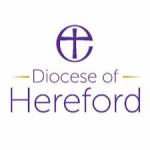Featured News
Featured News
Wheatland News – September 2020
Thought for the week – 30/08/2020
Singing our song
The life of faith has challenges. We are called to be citizens of the Kingdom of Heaven and to reject the values of this world. Jesus spoke of how we are called to pick up our own cross to follow him; Paul, who endured much hardship in his ministry, spoke of how we are to be living sacrifices.
But Jesus also said that his yoke was easy, his burden was light. I think by that he meant we were not to be governed by the clutter of religious rules and regulations that put so many obstacles between God and ordinary people. And Paul and the other leaders of the early church were also aware that we are not called to carry an unbearable burden. As a fellow vicar once said to me in one of my more idealistic moods; remember Jesus was crucified for us so we don’t need to be. In his letter to the Romans, Paul tells his readers that they cannot excel in every Christian virtue, in every form of Christian service. Not everyone is called to be a leader, a teacher, a servant. Each one of us is called to some form of Christian service, something where our faith guides us and so marks us out as followers of Jesus, but we are not expected to do the lot. Paul is actually being tremendously affirmative of the quiet life of faith that most of us lead. We are not called to stand on street corners to preach the Gospel, to embrace poverty, chastity and obedience, to spend all our waking hours praying and studying.
About 20 years ago, a priest called Francis Dewar wrote a book for those considering ordination called “Collared or cornered?”. His central message was that everyone has a gift that as Christians they are called to share; ordination can actually get in the way of that. He had a wonderful phrase; God has given each of us a song to sing. Our job is to try and find what that is, so that people can hear us and see that we are Christians when we sing it our way, as nobody else will be able to do.
Rev David Poyner
Thought for the Week – 23rd August 2020
Let’s call the person N. I first met him about 25 years ago, when he was the secretary of an organisation of which I am a member. He was energetic and well organised; he did very good work. I got on well with him; he was a somewhat larger-than-life character, perhaps with a short fuse but I was happy to accept the occasional eruption from him. I did notice however that the tantrums started to get more frequent as the years went by; he was starting to become something of an embarrassment to us all. I put this down to ill-health. At this stage, my only contact was via emails and I tried to avoid those. Then suddenly he resigned. At that point we learnt the truth; he had been downloading indecent images of children onto his computer. That resulted in a year in prison. Our paths never crossed again. I was pleased to learn from others his wife stood by him and I hoped that it had been an isolated aberration; that he would reform. I was keen that the organisation did not write him out of its history; he had done good work for us. Unfortunately, out of prison, he reverted back to his former ways; more convictions for the same offence followed. His wife died and his health was clearly failing. In jailing him again, a judge observed that he was past any prospect of reform. Then the truly appalling crime came to light; some years before he had raped a child. A few weeks ago, he died in prison, shortly after starting a lengthy sentence for this act.
Cases like this bring into sharp focus two opposing strands in Christianity. On one hand we are called to love, to show forgiveness and mercy. On the other we are called to work for justice. I cannot offer forgiveness to N for crimes he did not commit against myself; I would not presume to tell his victim that she should forgive him. She is a victim who needs support and part of this is that she gets justice; the prison sentence that N was serving was just. But what is not possible for humanity is possible for God. If N admitted his wickedness (for his actions were wicked) and truly repented, then he would be forgiven by God. I have no idea if this happened; even if it did, the church has learnt the hard way that sex offenders can easily revert back to their evil ways. We can minister to these people as best we can, but always aware that we cannot fully trust them. Safeguarding protocols are important. In any case, for myself it is irrelevant, N is dead. But what is not irrelevant is how I respond in prayer to this event. All I could pray was that God would deal mercifully with him. In the face of evil, I am not sure there is much else we can do, but to trust in God the just judge, for whom all things are possible.
Rev David Poyner
Thought for the Week – 16th August 2020
Thursday was A-level results day; the time students find out their grades and whether they are to be part of the 50% of 18 year olds who now go to university. I was doing my bit at Aston University where I work, conducting telephone interviews with students who wish to join us. I was in the happy of position of being able to give good news to everyone I spoke to.
However hard we try with interviews, it is always hard to know what motivates students to come to university. Some are keen on the whole undergraduate experience; they want a taste of independence and a chance to make new friends. Some are after qualifications that will allow them to have a secure and rewarding job. Others want to study because they love a subject. Probably most have a mixture of all of these and each is a valid reason. For a professional academic like myself, it is the love of learning for its own sake that I most identify with; that thirst for knowledge which continues to drive me, both in my professional life as a research scientist, but also in my spiritual life.
Traditionally the church has always distinguished between the proclamation of faith to those who do not share it and the teaching of faith to those who identify as Christians. I find it hard to make this distinction. The disciples called Jesus “teacher” and I try to explain what I believe and why whenever I speak, regardless of what the individual may or may not believe. Often it seems that I am trying to help individuals find their way through their own spirituality, perhaps helping them to find the language to express and make sense of this, the very deepest emotion that we all have. Somehow in that process, I believe the Holy Spirit is at work, knocking at the doors that guard all of minds. The Bible speaks of this process as gaining wisdom; not learning of facts (the writer of Ecclesiastes perceptively comments that too much study wears out the student!) but rather listening to our inner thoughts and hearing God, whatever we call him, whispering to us. This the Bible calls this (perhaps unhelpfully) fear of the Lord; in modern language, we would call it knowing God. This is the deepest education.
Rev David Poyner
Thought for the Week 10th August 2020
We have just had a service to celebrate some of the music of the 1960s which can point us to God. I’ve had great fun, looking at black and white video clips and reliving music I first heard as a child (born 1961, so 9 when the 60s ended!). One song I kept playing was “Turn, turn, turn”, “written” by Pete Seager in the late 1950s and made popular by The Byrds who released a version of it in 1965; https://www.youtube.com/watch?v=bCcFyR0MITQ
I say “written” because the song is almost all taken from the book of Ecclesiastes, chapter 3; “There is a time for everything and a season for everything under heaven”. Seager invented the title and contributed the last line. Ecclesiastes consists of a series of meditations by a writer traditionally known as “the teacher”. He observes the world and ponders why it seems so arbitrary; the Godly and ungodly both ultimately die and their works pass away. In the final chapter, the teacher concludes with what can seem like a cry of despair: “Meaningless, meaningless… everything is meaningless”. But the book needs to be seen in context of attempts by religious leaders to make sense of Israel’s history; a depressing story of failure and foreign occupation. Time and time again, the thinkers concluded that the failure was due to a failure on the part of themselves; if only they tried to reform their religion, God would restore them. The writer of Ecclesiastes would not have this; whatever God was doing, he could not be won over by ever more heroic acts of worship and obedience. His message was that we had to live our lives in a muddled, fallen world where good and bad both happened and to follow God despite that. I think he would have understood Jesus as God coming alongside us in this world.
As part of living in a muddled, fallen world, it becomes hard to make clear decisions. This is perhaps the message of the lines in Chapter 3 that Seager took for his song. Some of the lines are disturbing; “a time to kill and a time to heal…., a time to love and a time to hate, a time for war and a time for peace”. To that last phrase, Seager added the words “I swear it’s not too late”, which in 1960s USA with the Vietnam war in full flow, touched a cord with many. And yet I think the teacher recognised a grim truth about a muddled, fallen world. On August 15th, we mark the 75thanniversary of the ending of the 2nd World War, with the surrender of Japan. Victory came at a terrible price; not only Allied lives lost but two atom bombs. But I, for one, wish to give thanks for the allied victory over Nazi Germany and Imperial Japan, for the courage of those who fought for right. The teacher reminds us that the generation of the 1940s were right to choose war over unjust peace.

